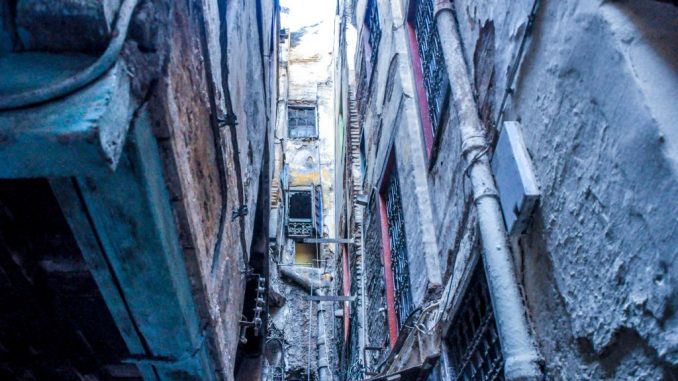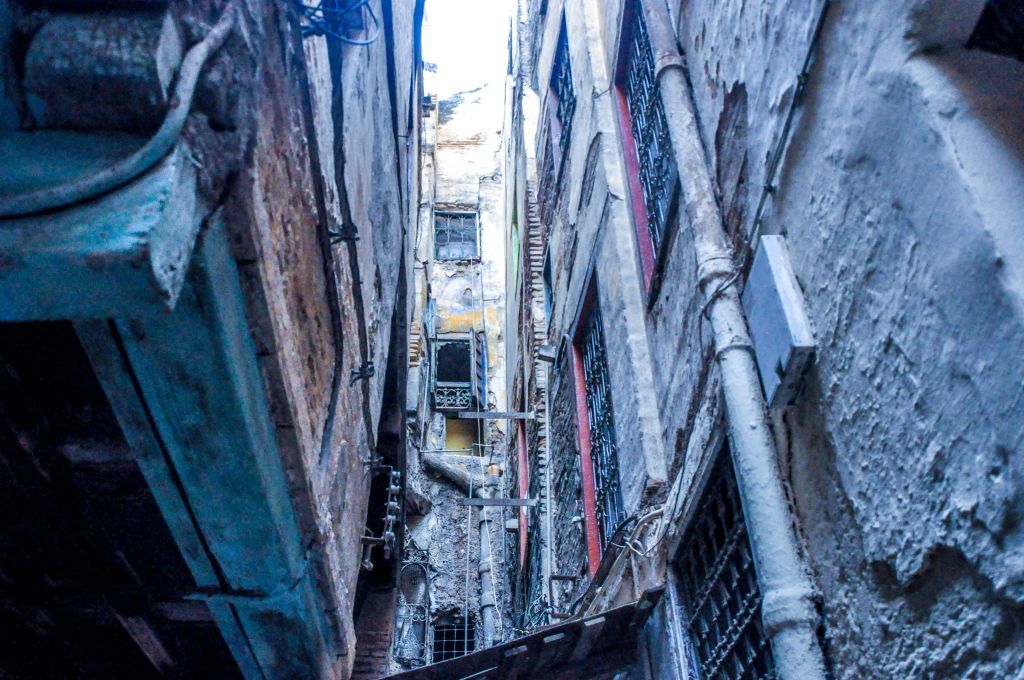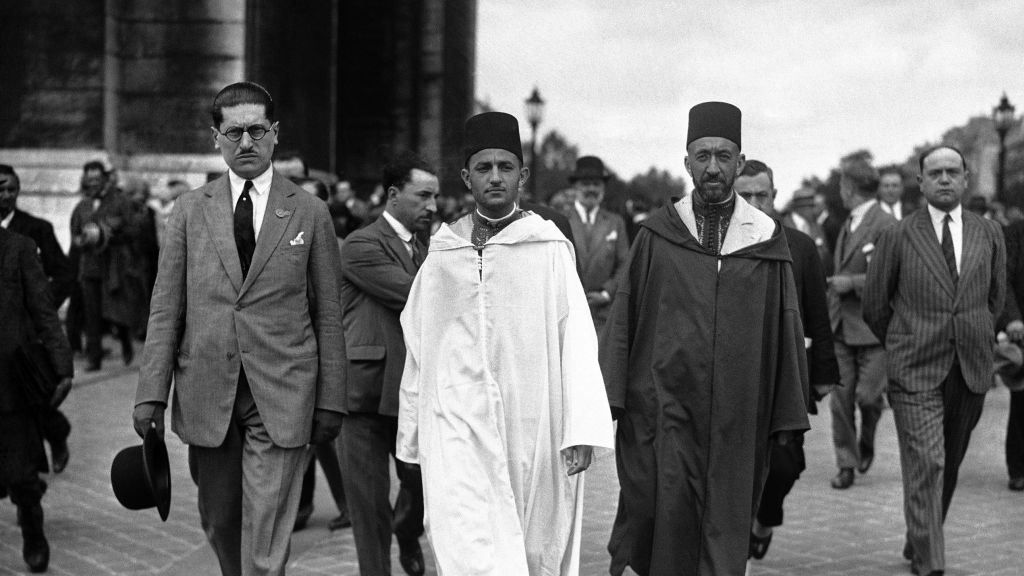
More than 43,000 Moroccan Jews have received reparations as Holocaust survivors. The main reason was that they were forced back into the Mellahs of Moroccan cities. But the Jews were also subject to discriminatory quotas and laws. This article in the Times of Israel, while not as hagiographic as this one, sustains the myth that the king of Morocco ‘saved’ the Jews – or at least prevented the confiscation of their property. But the Jews were actually saved by the Allied invasion beginning in 1942.There is no mention of the labour camps on Moroccan soil, or that Jews with British passports were put under house arrest. (With thanks: Lily)
At the United States Holocaust Memorial Museum in Washington DC, there are just a handful of testimonies from Moroccans — so few, in fact, that the chief of the museum’s oral history archive wasn’t even aware they existed. In these interviews, Jewish Moroccans describe the hardships of war that both Jews and non-Jews endured: bombings, food shortages, and curfews.
“There is nothing like a ‘Wow!’ [survival] story,” said case manager Jbeli, who has Moroccan clients.
But the Conference on Jewish Material Claims Against Germany, also known as the Claims Conference, convinced the German government to compensate Moroccan Jews for one primary reason — because they were forced to live in the mellahs, or historic Jewish quarters.
Under German law, forced residence is recognized as a type of persecution, explained Greg Schneider, the executive vice president of the Claims Conference. Moroccan Jews who were already living in the mellahs were not allowed to move out, and some who were living outside of the Jewish districts had to move into them, Schneider said.
Edery, whose uncle and cousins were forced to leave their home and relocate into the mellah in Marrakesh during the war, suspects that the policy may have been put in place as the first step to extermination.
“They wanted to contain them in one place. Was it done for the same reasons [as in Europe]? It wouldn’t surprise me,” said Edery. “The Germans just didn’t get the time to do it because of the King of Morocco.”
However, a mellah wasn’t exactly like a Polish ghetto because the gates were not locked (this is debatable – ed), people were not prevented from going in and out, and because most Moroccan Jews lived in mellahs even before the war. In addition, Jews weren’t forced into the mellahs in all Moroccan cities.
It is indisputable, however, that the conditions in the mellahs were terrible.

Homes in the mellah, or old Jewish quarter, of Fez, are located very close together,
with tiny alleys as streets. (photo credit: Michal Shmulovich)
Montreal radio commentator Charles Barchechath, who was born in 1943 in the mellah of Rabat, said that food was scarce and typhus and cholera were common.
“The epidemics took the lives of a lot of Jews of Morocco. My father caught typhus, but luckily he recovered,” he said.
Between 1940 and November of 1942 when the Americans landed in Morocco, Moroccan Jews also had to abide by discriminatory laws: Jewish children were expelled from schools, Jews were fired from government jobs, and there were quotas on how many Jews could attend universities or work as doctors, lawyers and pharmacists, said Robert Satloff, the executive director of the Washington Institute for Near East Policy, who wrote a book about the Holocaust in Arab countries.

The Washington Institute for Near East Policy Executive Director Robert Satloff testifies
on Capitol Hill in Washington, Wednesday, Feb. 9, 2011. (AP Photo/Manuel Balce Ceneta)
“In general, Vichy laws that were applied in France, were applied in Morocco,” Satloff said. “The vast majority of Moroccan Jews were not working in the public sector, were not university students or university graduates, but the laws were there and they applied.”
Vichy officials attempted at one point to make an inventory of property held by Jews, but Mohammed V met with the Jewish community and promised to slow down the census, Satloff said. As a result, Jewish property in Morocco was not confiscated, unlike Jewish property in neighboring Algeria.
Historians also say that had American troops not landed in North Africa in 1942, Moroccan Jewry — which numbered approximately 250,000 during WWII — may have also been sent to the death camps.

File: Morocco’s Mohammed V, wearing white robes, walking with the country’s
Grand Vizier Si Mohammed El Mokri after he placed a wreath on the
Tomb of the Unknown Warrior at the Arc De Triomphe during a visit
to Paris, France around July 4, 1930. (AP Photo)
According to documents that outline the Final Solution, Hitler had planned to exterminate 700,000 French Jews – a number that makes sense only if the Jews in French North Africa are included, Satloff said.
Worldwide, more than 43,000 Moroccan Jews have received reparations since 2011, when Germany finally recognized them as Holocaust survivors, according to data from the Claims Conference.
But in addition to the payments, the acknowledgement that the Jews of Morocco also suffered from fascist persecution is helping to preserve history.
The applications filed by thousands of Moroccans for compensation have become the largest source of information on the experiences of Moroccan Jews during the war.

Leave a Reply